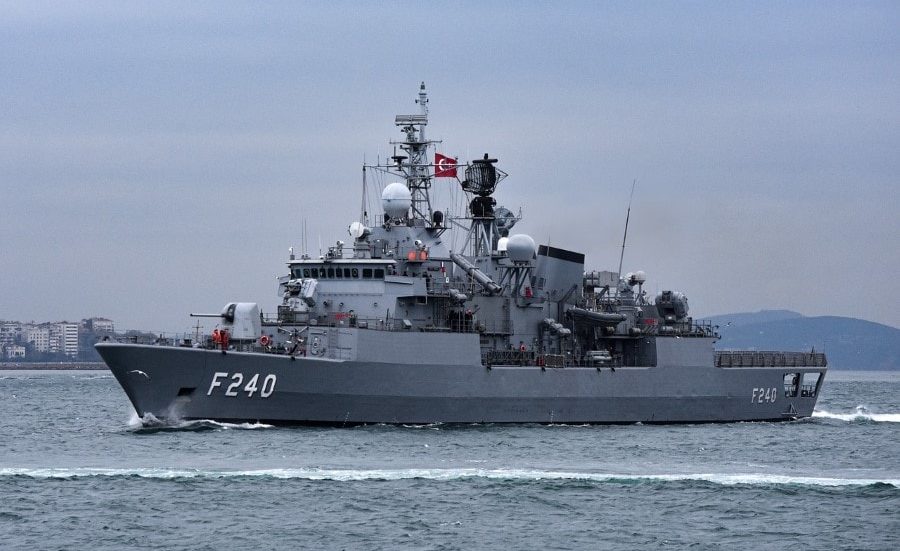Turkey’s naval power is a growing concern for Israel as Ankara upgrades its maritime force to achieve regional dominance, research center warns.

Turkey’s naval power is growing and poses a potential threat and future challenge for Israel, a new study warns. By now, the Turkish Navy is the strongest maritime force in the region, the Maritime Policy & Strategy Research Center says in its annual assessment.
Turkey’s naval strategy is changing as the country no longer focuses on its ties with NATO, Colonel (res.) Shlomo Guetta wrote in the University of Haifa study. Instead, Ankara is building a Navy that characterizes a regional power and can execute long-range operations, he said.
The analysis highlights key components of Turkey’s naval power that are of particular concern. Ankara is upgrading its submarine fleet with six advanced subs that will be completed in the coming years. Overall, the Turkish Navy is expected to field 12-14 modern submarines, giving it a clear advantage over Israel.
Turkey is also building multipurpose frigates and corvettes and arming them with Harpoon missiles, the study notes.
New strike capabilities
In parallel, the Turkish Navy is boosting its amphibious strike force and intervention capacity, Guetta says. A flagship project on this front is the construction of Anadolu, an amphibious assault ship that can serve as a light aircraft carrier.
US military expert Richard Parley estimated that the new warship will offer Turkey unprecedented amphibious strike capabilities in the Black Sea and Eastern Mediterranean, the study says.
In addition, Turkey produces its own weapons and military gear, including cruise missiles with a range of hundreds of kilometers. Overall, Ankara has been shifting to self-production of naval assets and relies on German expertise to build submarines and other vessels.
In recent years, Turkey held huge naval exercises with over 100 ships and dozens of airplanes, the study says. By now, the Turkish Navy should certainly be considered a green-water navy that can operate far beyond the country’s shores, Guetta wrote.
The analysis notes that Turkey’s naval forces have limited operational experience, but gained valuable expertise by training with the US Navy.
Will Turkey confront Israel?
The study concludes that Turkey’s naval power mostly threatens its traditional regional rivals for now, and especially Greece and Egypt. However, it warns that Israel should seriously consider the potential threat as well.
Guetta points to Turkey’s economic interests at sea, fundamental hostility to Israel, and the regime’s lust for power and glory as factors of special concern. Given Israel’s dependency on sea exports, Jerusalem must not ignore Ankara’s impressive naval arsenal, he says.
Notably, an earlier study warned that Turkey could directly intervene in the next conflict between Israel and Hamas in Gaza. The Turkish government’s regional ambitions make a future conflict largely inevitable, the study predicted.


